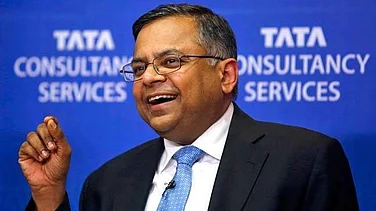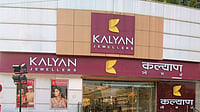
Corporate credit in India moderated in April–September FY26, with Crisil’s credit ratio falling to 2.17 from 2.75 a year ago.
Crisil recorded 499 upgrades and 230 downgrades; ICRA reported 214 upgrades and 75 downgrades (Credit Ratio 2.9); India Ratings upgraded 181 and downgraded 57; Careedge had 282 upgrades and 110 downgrades.
US tariffs pose a monitorable risk for export-oriented sectors like diamonds, textiles, and seafoods.
Domestic consumption boosts (GST and income tax cuts), lower inflation, rate moderation, infrastructure spending, and low corporate leverage support credit resilience.
Corporate India's credit moderated marginally in the April-September period, and the impact of the tariffs slapped by the US is a monitorable factor going ahead, rating agencies said on Tuesday.
Crisil said the credit ratio, or the number of upgrades to downgrades, moderated to 2.17 in the first half of the fiscal, which is down from 2.75 in the same period last year and 2.64 in the October 2024-March 2025 period.
The agency, which rates 7,300 companies, said there were 499 upgrades and 230 downgrades during the period in its portfolio.
The credit quality is expected to stay "resilient" going forward as well, its chief criteria officer Somasekhar Vemuri told reporters here, adding that the impact of the US tariff is an aspect which needs to be monitored as some export-oriented sectors may face some challenges.
The rating agency's managing director Subodh Rai said it expects the government to respond with a package, including a fiscal one, for the benefit of the exporters.
Positive factors which will help the rating profiles going forward will include boost in domestic consumption through GST and income tax cuts, lower inflation, interest rate moderation, government's continuing infrastructure spending and low corporate leverage, it said.
ICRA, a peer rating agency, said it upgraded the ratings of 214 entities while downgrading 75, resulting in a robust Credit Ratio of 2.9 during the same period.
Its chief rating officer K Ravichandran said the 50% US tariff presents a "significant challenge" for exporters, particularly in sectors such as cut and polished diamonds (CPD), textiles, and seafoods, but added that the domestic-focused nature of the Indian economy is expected to limit the broader macro impact.
"The potential extension of protectionist measures to the services sector remains a key monitorable. If enacted, the proposed HIRE Act could significantly disrupt India's outsourcing industry, given its substantial reliance on the US market," he added.
India Ratings and Research, another peer, said it upgraded 181 issuers and witnessed 57 downgrades.
The upgrades marginally moderated during the six-month period, it said.
The agency said issuers have sufficient headroom to sustain their credit profile going forward, and added that rating actions will moderate in the remainder of FY26.
Careedge Ratings said it had 282 upgrades and 110 downgrades during the six months, and infrastructure led with the best performance.
"As global turbulence intensifies, the coming months will be a litmus test for India Inc.'s credit strength," the domestic rating agency said.
































